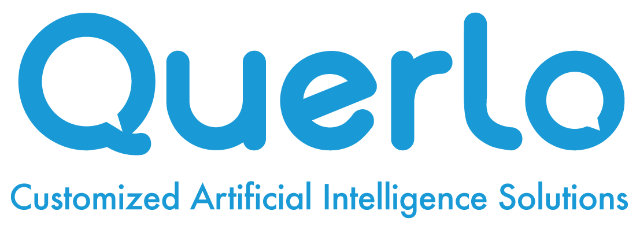On Wednesday, May 19, Francesco Rulli, Global CEO of Querlo, and Sabya Mitra, CEO of Renew HR, engaged in an interesting discussion about the impact of Artificial Intelligence systems in the world of HR, specifically how AI solutions can assist during the COVID-19 pandemic. Sabya has been working in HR for the last 20 years and specializes in SuccessFactors in both small and large companies.
Before talking specifically about the impact that the COVID-19 pandemic has had on HR all around the world, he importantly draws attention to the fact that this is not the first time our world has dealt with a crisis or natural disaster situation. He uses Hurricane Katrina and other natural disasters, such as blizzards, that commonly isolate people in the Northeast, as examples of times when HR has to quickly figure out a way to effectively communicate with their employees. This issue arises because each employee is stuck in a different location and they are looking for company policy on how the situation is going to be handled and they are looking for the next steps they should take themselves.
Sabya noted that another important issue that arises during times like these is “how to communicate to a large number of people, with different kinds of skill sets in terms of technology and other things, and communicate with them very decisively and in a quick period of time.” He thinks that Artificial Intelligence could greatly help effectively alleviate this complex problem. Sabya notes that one of the reasons why AI would be so useful is because it uses machine learning. Therefore, it would be able to learn from the last crisis scenario and improve itself going forward to be much more prepared for the types of questions that employees would be asking. This type of learning to improve question response is crucial because people tend to feel even more lost and anxious when they reach out to HR and don’t receive the help they are seeking. On a normal day, people in HR will receive around 20 emails and/or phone calls, however, during a crisis, that number will double or even triple. It would be virtually impossible for a person to respond to all of those questions within a day on a consistent basis without the help of AI. Sabya notes that it is important not to keep employees waiting hours, or even days, for their serious questions to be answered.
Another substantial benefit of using AI to assist HR is that the system will communicate with HR about the feelings of their employees in order to help them figure out how to go forward during the crisis as a united company.
During the conversation, Francesco showed Sabya one of Querlo’s chatbots as an example of how employees could access information in a simple, understandable format–almost like a WhatsApp conversation. The chatbot would also be using machine learning during this process and would communicate the concerns of the employees back to HR. This could help HR improve policies, and focus on providing their employees with the information they really want. In response to seeing the chatbot, Sabya enthusiastically says, “what you have shown, is exactly what would be needed in different situations, but particularly in crisis situations…we should learn from our mistakes based on what happened in the past…HR should know the types of questions their employees are asking so that they can be better prepared.”




